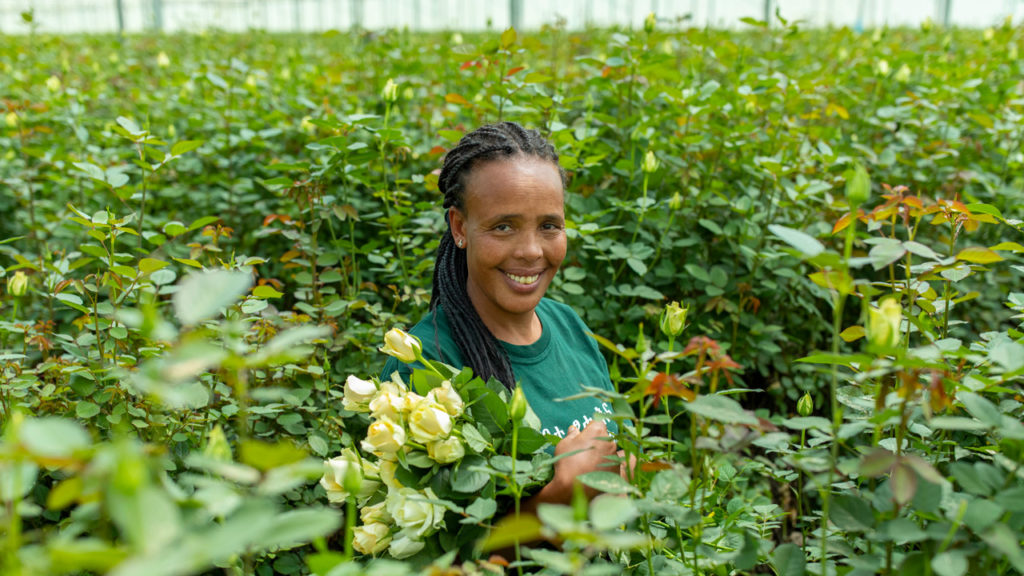Fairtrade is supporting the gender equality drive in the flower sector, where approximately 50% of all workers are women. Programmes like the Women’s School of Leadership tackle barriers to women’s economic development, such as access to finance and involvement in decision-making.
The Women’s School of Leadership is part of a broader ‘Dignity for All’ programme, which benefits more than 11,000 flower farm workers across six flower farms. To date the programme has delivered training in subjects such as workers’ rights and gender equality, and has worked with trade unions to advocate for fairer wages and improved structures to support women claiming their rights on Fairtrade certified farms. Through the programme, the role of gender committees has been strengthened, enabling women to become leaders at work and in their communities and, through women’s rights training, advocating for women who have been victims of gender discrimination or violence in their communities.
Starting in 2019, the project has now seen two cohorts of flower workers graduate from the Women’s School of Leadeship, having completed training modules that have supported women to become leaders at work and in their communities through mentorship, upskilling, and behaviour change initiatives.
Besa Kabeto, 25, a worker at Herburg roses was on the second school cohort. She said, ‘I learned a lot about gender equality and project management. I have also acquired skills on saving money from the training module. The training gave me inspiration to aspire for better income and life’.
As part of the school programme, eight Incoming Generating Activity groups have been established, supporting women to complete business plans and diversify their incomes. Beredu Site, who was in the school’s first cohort, says that through the training she developed new skills and has started a business breeding goats. She also describes how the training has improved her self-confidence and awareness of gender issues. She is now standing up for gender equality both on the farm and in the community.
Besa and Beredu both work at Herburg Roses, where Aldi sources its Fairtrade roses. Aldi, the UK’s second largest retailer for Fairtrade flowers, has invested £200,000 in the programme. Discussing the project, Mary Dunn, Managing Director of Corporate Responsibility at Aldi UK said, ‘It’s essential to support the countries around the world where our products are produced in order to address equality challenges and create fair and supportive working environments.
‘Aldi is a proud signatory to the UN Women’s Empowerment Principles and is committed to promoting gender equality and women’s empowerment. We are focused on maintaining high standards throughout our supply chain and have partnered with Fairtrade to both empower and protect women, and to give them the tools and support they need to take on leadership roles on farms in their communities. It’s great to see the difference the Women’s School of Leadership Programme is making to women working on the flower farms in Ethiopia.’
Fairtrade exists to get workers a better deal and this programme has built on the work of the Fairtrade Standards to promote gender equality and women’s rights in the flower sector. In 2021 more than $8million in Premium was generated from sales of Fairtrade flowers, which has contributed to projects such as adult education classes, free childcare and heath checks that workers benefit from. Furthermore, the Fairtrade Standards have also supported the sector to make progress in increasing wages, reducing pesticide use and protecting workers’ rights.
